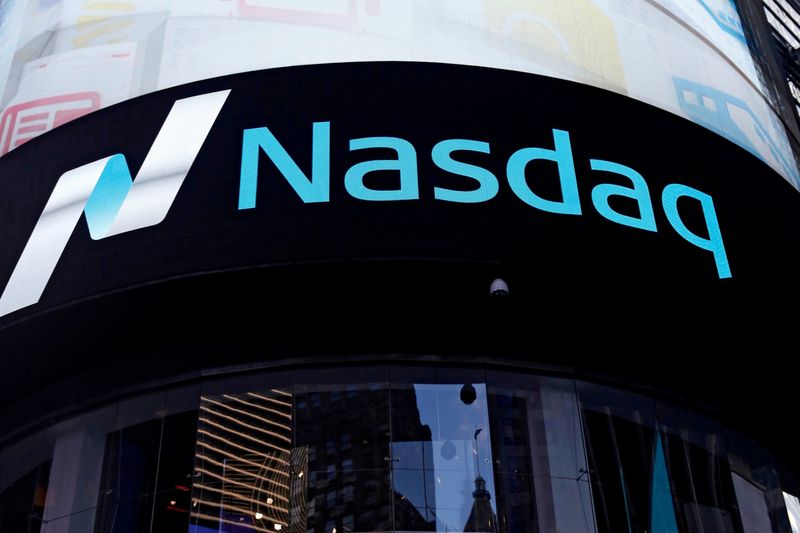By Manya Saini and Laura Matthews
(Reuters) -Exchange operator Nasdaq beat estimates for second-quarter profit on Wednesday on the back of consistent demand for its investment-related products and capital markets solutions such as anti-financial crime software.
In recent years, the company has rejigged its business model away from market-sensitive businesses such as listing fees from initial public offerings on its exchanges and trading towards financial technology services.
The diversification helped the transatlantic exchange operator blunt the effects of a drought in the U.S. market for IPOs that had soured last year due to rising interest rates and heavy volatility.
Even as executives at major banks and traders have now begun to see "green shoots" in the IPO market, spurring hopes of a potential recovery, multi-billion listings at Nasdaq's stock exchange are yet to return so far this year.
"Our second quarter results demonstrate how Nasdaq's client-centric culture and diversified business model provide the stability to perform well in different market environments," Nasdaq Chief Executive Adena Friedman said on an analysts' call.
Nasdaq's shares rose nearly 1% to $51.80 in morning trading after the results.
The company's solutions businesses revenue climbed 6% to $674 million in the quarter compared to a year earlier, while its trading services unit reported a 1% decline to $250 million.
Nasdaq said it earned 71 cents per share on an adjusted basis in the three months ended June 30, beating analysts' estimates of 66 cents per share, according to Refinitiv IBES data.
Net revenue in the quarter rose 4% to $925 million.
A total of 23 companies listed on its Nasdaq Stock Market through IPOs in the quarter. That compares with 38 a year earlier.
In line with Friedman's diversification strategy, Nasdaq inked its biggest-ever deal of $10.5 billion for Thoma Bravo-owned software firm Adenza in the quarter.
The deal hit the stock, which has fallen 11% since its announcement in June. Analysts cautioned at the time the firm may have overpaid for a relatively unknown asset.
Nasdaq believes the deal will boost its ability to solve clients' complex risk management and growing regulatory challenges. Its executives are banking on Adenza's long-term potential to diversify its products and expand the market for its risk management, regulatory software and financial crime technology.
Adenza continues to grow through new and existing client sales as well as cross-selling opportunities.
"The recent performance of Adenza furthers our conviction that we are working towards acquiring a business that delivers world leading solutions that meet the growing dynamic regulatory needs of our clients," Friedman said.
Friedman said that over time, she is confident that she will demonstrate both to Nasdaq's clients and shareholders that Adenza is a great business to have.
Meanwhile, Nasdaq announced during the call that it is halting its efforts to launch a U.S. digital assets custodian business and pursue the relevant license, partly because of a lack of regulatory clarity.

"We like to operate in environments that have a pretty well-known regulatory underpinning," Friedman said. "And that just made us decide that it's not the right time for us to enter that business."
Friedman said Nasdaq remains committed to supporting the evolution of the digital assets ecosystem in other ways, including through its ongoing engagement with regulators, technology solutions and its partnerships with potential ETF issuers to support tradable exchange-listed products.